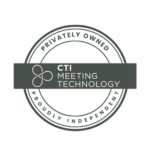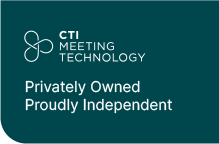We know content is the cornerstone of every event, but who delivers it to your audience? The selection of speakers is almost as important as the content itself. Think of it like casting the right actors for a play; their performance can make or break the show.
Much like a big part of a play’s success relies on the actors, choosing the right speakers for your event is a crucial decision. Once you decide on the topics discussed, compile a list of potential speakers and reach out to them to start a conversation.
The Pivotal Role of Speakers in Event Success
As an event planner, we are sure you always want to have the most knowledgeable and charismatic speakers at your meetings. However, juggling multiple sessions and panel discussions can get pretty overwhelming.
Thankfully, there is a solution – or at least some help! – to smoothly handle your event speakers and communicate with them. Speaker management software can simplify your job, allowing you to focus on more important parts of your event.
But we know this is easier said than done. Managing event speakers definitely comes with some challenges.
Challenges of Speaker Management
You probably have dozens of presentations at your next event. On top of that, you need to choose keynote speakers for specific sessions. Different speakers have different needs and preferences. It is impossible to meet every individual request, but providing your speakers with reliable and user-friendly software is a great starting point.
Event technology can also be a great help in managing numerous presenters effectively. It is normal to have dozens – or even hundreds! – of presenters at your event. Imagine manually adding the right presentation to their talk, and scheduling them in the right sessions. On top of that, you need to communicate with them about any changes or modifications in the program, which makes an efficient communication system almost a necessity.
As an event planner, you are probably used to improvising. But speakers canceling or not showing up can quickly throw off your event. Expect the unexpected and prepare a contingency plan that includes a backup solution in case one of the speakers cannot make it on the day of the conference.
Organizers have relied on emails and spreadsheets to manage their speakers in the past. This doesn’t work for large-scale meetings; these manual processes take too much time and leave too much room for error – a perfect recipe for chaos. But no need to worry! Event technology, specifically speaker management software, is your new best friend. It not only simplifies the process but also reduces the risk of human error and wasted time.
Understanding Speaker Management Software
But what actually is speaker management software? In simple terms, it is a tool that streamlines the entire process of managing event speakers on a single platform.
Save valuable time by quickly identifying sessions in need of a speaker, managing their profiles, and communicating with them directly from the platform. Think about it not only as a way to simplify speaker management but also as an opportunity to spend more valuable time on other important tasks that will help your event be successful.
There are as many different speaker management software as there are types of coffee. Choose the one that aligns best with your needs and preferences, ensuring it offers the following benefits:
- Streamlined management of speakers’ personal details.
- Ensuring data consistency.
- Easy communication between speakers and event planners.
- Task automation.
- Self-management for speakers.
Pre-Event Planning and Coordination
Let’s start from the beginning. How exactly is speaker management software helpful during the planning process? You probably need to contact a ton of speakers to ensure they upload the correct file, communicate the session they are assigned to, and solve any questions or doubts they might have.
Imagine doing all this through email. You will probably forget to contact some speakers or miss some of their emails; we have all been there before! With speaker management software, any message that speakers need to receive can be sent in bulk to save time. Speakers can also upload their presentations directly to the platform, taking that off of your checklist. After that, you can quickly filter and send a bulk email to all those speakers with missing files.
Is there a change in the session date? Or maybe one of your speakers is asking to present at a later time? All communication can be managed directly through the platform, ensuring none of these messages get lost. You can make these changes in just a few clicks.
To put it simply, what took event planners hours – even days! – to complete in the past, can now be achieved in a few minutes. Centralizing all your event data and communications facilitates integration with other relevant event modules.
Key Features of Speaker Management Software
Yes, speaker management software sounds really good, but how do you choose the right one when there are so many options on the market? Remember, there is no wrong or right when it comes to event technology, but here are some of the key features that will ensure a smooth speaker management process:
- Speaker Profiles: Collect speaker headshots, bio, and contact information in one place. Some individuals might not be happy with sharing a lot of information, so make sure only basic fields are required. It is also easier for all parties if speakers fill out this information by themselves, so allow them to self-manage their profile information.
- Program Management: Ideally, you also have software dedicated to managing the whole event program that can easily integrate with the speaker management software. This tool will allow you to effortlessly allocate speakers to different sessions and identify any duplicate tasks on their agendas.
- Content Management: Allow speakers to upload their material directly to the platform. If possible, offer multiple file types and add short instructions that presenters can refer to. The platform should be user-friendly enough for speakers to easily upload, download, and change their presentations without any extra help.
- Streamlined Communication: There is nothing worse than drowning in a sea of emails! Send bulk emails and manage the whole conversation with your speakers through the platform. You can easily send individual notifications and reminders as well. Some providers will even allow you to send multi-step notifications, meaning you can prepare email templates ahead of time and send them to the designated individuals once they complete or miss a task.
- Task Automation: Forget about filling out data manually throughout different platforms. With the right software, speakers can easily manage their personal profiles and this information is then automatically pulled to the event website.
You may find speaker management software that offers more features, but as long as you have these, success is almost guaranteed!
Read more about our complete speaker management solutions.
Enhancing Speaker Experience
Speaker management software acts like the director’s assistant in a play. As an organizer, it definitely makes your job easier, but you cannot forget that the actors – your speakers – need attention too. Ensure the platform is user-friendly to simplify data uploading and profile management.
Allowing speakers to upload multiple file versions is also recommended; no one does it perfectly on the first try! While independence is great, take into account that some of your participants might not be tech-savvy, so offering to upload and edit files on their behalf can be very helpful as well. Include an email address or phone number they can contact in case they run into errors or need help with the software.
Choose a provider that has a reliable and expert technical support team.
Post-Event Follow-Up and Evaluation
Like any play or movie, reviews follow. You probably send out feedback forms to your attendees to measure your event’s success. Why not do this with your speakers as well?
Send an email asking for their honest opinion. About the overall event experience, but also regarding the speaker management process. Was the chosen platform easy to navigate? Did they receive the help they needed, in a timely manner? Was the communication with organizers straightforward?
Asking these types of questions is the only way you can assess whether the chosen software was the right option or not. It is also a great opportunity to identify areas that might need more attention for future events.
And don’t forget to express gratitude! Your speakers a very important part of your event, and they deserve recognition. Taking the time to draft an individual email to thank them for their participation will definitely strengthen the relationship with your organization. Remember, a satisfied speaker will be most likely to return for future events!
Challenges and Considerations
While event technology has progressed tremendously over the past few years, it is not perfect. And it can surely benefit from a human touch.
Having speaker management software doesn’t replace the members of your team who work on speaker management. You still need a dedicated team that can double-check the information in the software and reply to speakers’ messages, assist them with uploading files, or spot any scheduling conflicts.
To Wrap Up…
Event technology evolves fast. Stay on the lookout for upgrades and improvements to speaker management software. Ideally, you don’t want to change software providers every time you have a new event, so make sure the one you choose is proactive and constantly improves their product.
Speaker management software can be your ally in taking your events to the next level. Make a list of all the features you need, start researching, and embrace the benefits of implementing event technology.
At CTI, we have been working with organizations and event planners for more than 40 years, so we know exactly what you need for a successful meeting. Visit our website to learn more, or even better, talk to us!






